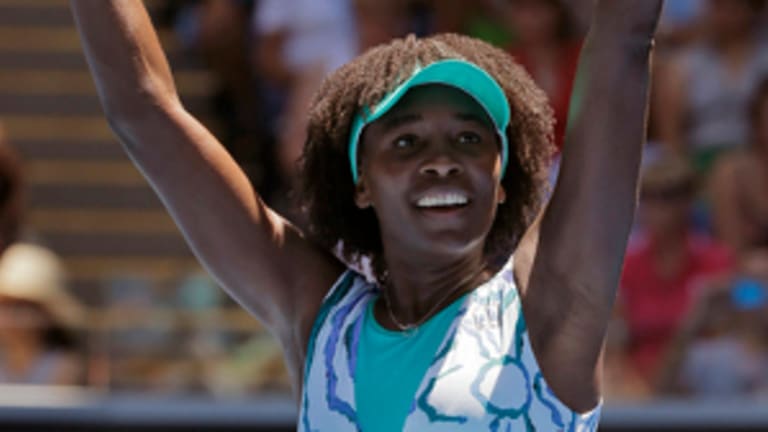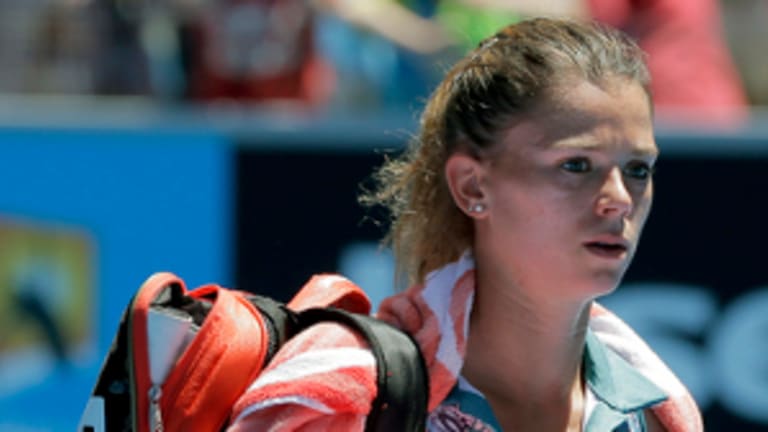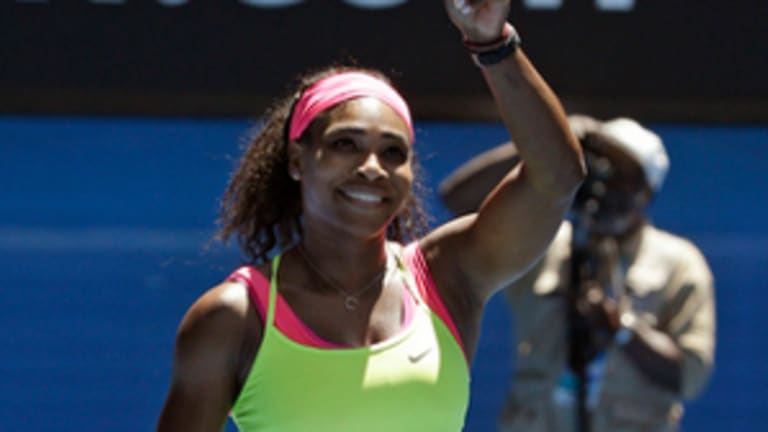No one has to ask Venus or Serena Williams to twirl. They’ve been doing it after every win, with grins as wide as their faces, for years now. Yet it still comes as a bit of a surprise: After spending an hour and a half looking stony and serious (in Venus’s case) or formidable and desperate (in Serena’s), these two 30-somethings suddenly turn back into ecstatic young girls and show us how much winning a simple tennis match continues to mean to them.
Yesterday, Venus and Serena had a chance to do their celebratory whirls within the same hour. First, Venus came back to beat Camila Giorgi 4-6, 7-6 (3), 6-1; not long after, Serena followed her big sister’s lead and came back to beat Elina Svitolina 4-6, 6-2, 6-0. Serena said she saw Venus’ score in Laver Arena and was motivated.
“I thought, Wow, she’s been through so much with her illness, with everything she’s had to do," Serena said. "Gosh, if she can do it, I’m perfectly healthy, I’m fine. I should be able to do it, too.’”
Whether Serena’s thoughts went exactly that way on court, we’ll never know. But we do know that Venus has been inspiring her younger sister for three decades now. And in their matches yesterday, we got a glimpse of their careers, and the results of their relationship, in microcosm.


